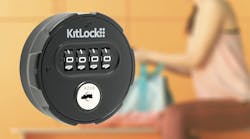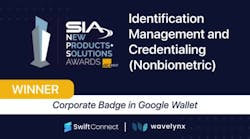"Smart card technology is already in the big leagues for digital identity security. Today roughly half of the world's 4.5 billion adults use a microprocessor card for secure personal access to some kind of service over a network," said Piou.
Citing industry estimates, Piou stated that more than 2.8 billion microprocessor smart cards are actively used around the world today.
"In each of the industry's three biggest markets -- mobile communications, payment and broadcasting -- smart card technology has been deployed to protect individuals' identities and access to network-based services. Our technology is already pervasive and central to what we are starting to call digital identity security," said Piou.
Smart cards are miniature computers with hundreds of built-in security features, an operating system and applications. Put into peoples' hands as cards, USB tokens, electronic passports and other familiar forms, smart card technology is convenient, portable and highly secure.
The scale of smart card unit production is impressive. Axalto alone shipped 440 million microprocessor smart cards last year. That is more than the number of mobile phone handsets shipped by Nokia and Motorola combined. In fact, the entire personal computer industry worldwide only shipped about 208 million PCs, according to industry sources.
Revenue comparisons also put Axalto, and the smart card industry, in the digital security big leagues. Axalto had 2005 revenue of $1 billion, about the same as McAfee and nearly three times that of RSA Security.
The story will get even better this year, when Axalto and its largest competitor Gemplus complete plans to merge, according to Piou. The new company, called Gemalto, will have 11,000 employees with expected 2005 pro- forma revenues of approximately $2.2 billion at current exchange rates.
Compared to other leaders in the digital security space, a $2.2 billion Gemalto will be larger than VeriSign at $1.6 billion last year, and respectable even next to Symantec at $3.6 billion.
"In fact, smart card technology is already established as the leading portable, digital identity security technology in the world today," he said. "But we are evolving as an industry. The more networked and interconnected our society becomes, the more demand there will be for smart cards," Piou said.
The long term outlook for the industry is outstanding, according to Piou.
"The need for digital security has been the driving force that brought us to where we are today, and it is the force that will propel us forward to even faster growth. That started happening several years ago in three important new markets -- identification of citizens, employees and Internet customers -- and we are now on the verge of rapid growth in all three of them," he said.
The reason smart card technology will continue to lead in digital identity security over the long term, Piou argues, is mobility.
"Look at your life and the world around you. People are constantly on the move," he said. "What other technology fits better with people's mobile lifestyles than ours? Microprocessor cards deliver security and new applications in familiar packages, like cards that can easily slip into a wallet or inserts that can be bound into a passport. It's the 'big C' as I've heard it called recently -- convenience."
But what will really drive the industry growth is the need for more security in every major part of the world's networked economy, Piou stated.
"We securely identify individual identities on any type of network and provide them access to services, whether for payment, information or traveling between nations. We do it securely, inexpensively and conveniently for more than two billion people today, and our best years as an industry are in front of us. We could not be at a more exciting time and place," Piou concluded.

